Visit to get our entire library of TED Talks, transcripts, translations, personalized talk recommendations and more.
Why do we trust some companies and not others? Using real-world examples, digital trust advisor Marcos Aguiar decodes this make-or-break quality — and offers seven tools to help leaders design a foundation of trust into their business ecosystems in order to achieve long-term success.
The TED Talks channel features the best talks and performances from the TED Conference, where the world’s leading thinkers and doers give the talk of their lives in 18 minutes (or less). Look for talks on Technology, Entertainment and Design — plus science, business, global issues, the arts and more. You’re welcome to link to or embed these videos, forward them to others and share these ideas with people you know.
Become a TED Member:
Follow TED on Twitter:
Like TED on Facebook:
Subscribe to our channel:
TED’s videos may be used for non-commercial purposes under a Creative Commons License, Attribution–Non Commercial–No Derivatives (or the CC BY – NC – ND 4.0 International) and in accordance with our TED Talks Usage Policy (). For more information on using TED for commercial purposes (e.g. employee learning, in a film or online course), please submit a Media Request at
Transcriber:
I’m talking to you today
from my home in Brazil,
where I live with my wife and two kids.
Let me start by asking a question
to the other parents out there.
Would you consider
asking a total stranger,
someone you’ve never met before,
never even seen before,
to meet your kids after school,
put your kids in their car —
which, by the way,
you haven’t seen either —
and drive them halfway across town?
Even just asking that hypothetical
question freaks me out.
Let me ask you another question.
Would you invest in a business
that does that —
have strangers driving kids around town?
It seems like an absurdly
untrustworthy value proposition,
an impossible business plan,
doomed to fail, doesn’t it?
Well, this may come as a surprise to you,
but back in 2014,
three moms started a company
called HopSkipDrive,
with this exact model.
It’s served one million customers,
and, in February 2020,
raised 22 million dollars
and expanded to several cities in the US.
Is the business foolproof?
Well, no business is,
but it’s good enough to keep growing.
How did they do that?
How did they create trust
in what many of us believe
is one of the most inherently
untrustworthy situations possible?
The short answer —
they built trust in the overall system.
Customers don’t necessarily
trust HopSkip drivers —
that would be relational trust.
But they do trust
the HopSkipDrive system —
what we call “systemic trust.”
And that’s what makes it work.
I am fascinated by this.
Here in Brazil,
people these days tend to say
that trust is a rare commodity.
I don’t think we are alone.
Trust appears to have
broken down all around us.
And yet, the concept of trust
has never been so fashionable.
But what is trust, really?
Is it a feeling,
an invisible part
of our human DNA or culture,
or this quasi-spiritual thing,
like the Force in Star Wars?
Or is it really something more concrete?
I am an engineer and a consultant —
worse still, with a PhD —
sorry about that.
I study the structures and systems
of businesses and organizations.
So, a couple of years ago,
I started wondering
whether we could decode and manage
this seemingly intangible
concept of trust.
I’m pleased to report we are doing it,
which I believe is really important,
because from my perspective,
if we can decode
how trust impacts businesses,
we can make them more successful,
which might mean
that their partners and employees
are more engaged
and can be more cooperative.
And we, as customers, can be happier,
more satisfied and safer
when we interact with them.
So, today, I want to present to you
the results of our study,
and also offer to you a toolbox
to build systemic trust.
We basically started
with a sizable graveyard
of over 100 failed business ecosystems.
And by “business ecosystem,”
we mean a business that can only function
if all participants cooperate.
Care.com, a childcare ecosystem,
is a great example.
Independent babysitters,
independent parents,
all have to work together
in order to make the system work.
Amazon and Apple iOS
are also business ecosystems.
It is that necessary cooperation
that makes those business ecosystems
a perfect laboratory to study trust.
And in this study, we defined trust
as the confidence
that someone or something
will deliver on a promise
or behave as expected.
We went into this wanting to understand
whether trust was playing
any role whatsoever
in these failed ecosystems’ inability
to scale and grow
in comparison to their successful peers.
For instance, we studied Orkut
versus Facebook.
What is that?
You don’t know what Orkut is?
Why doesn’t that surprise me?
RIM / Blackberry
versus Apple iOS or Android,
HouseTrip versus Airbnb.
I bet you haven’t booked your last
vacation on HouseTrip, have you?
You get the idea.
What we found is that trust
does play a meaningful role
between success and failure
of business ecosystems.
It wasn’t always
the final nail in the coffin,
but it was relevant [enough]
to send more than half to the graveyard.
Why was that?
Many of the failed ecosystems
made the mistake
of naively assuming that cooperation
anchored on trust
would spontaneously emerge
between complete strangers.
And yet, we found more than 70 percent
of uncooperative behaviors
in the failed ecosystems.
In contrast,
nearly nine in 10
of the successful ecosystems
actively embedded trust
right into the workings of the platform.
They built systemic trust.
In essence, ecosystems
were competing on trust.
Trust had become a source
of competitive advantage.
The question, then,
is “How did they do it?”
How did they design for trust?
When we examined
the successful ecosystems,
we found seven trust tools
embedded in them.
Let me start with the first one, access.
Many of the successful ecosystems
define very well who is allowed in
and who can be kicked out
of the platform for bad behavior.
HopSkipDrive does access well.
It takes the drivers
through a strict background check
before they are hired into the platform.
They also have a zero tolerance policy,
which is superclear to everyone,
so drivers know they can be terminated
if they are caught illegally using
their mobile phones while driving.
Next is contracts.
Trustworthy ecosystems formalize
a relationship with all participants
through contracts.
If you’ve ever clicked the box
“I agree to the terms and conditions,”
you signed an ecosystem contract.
Then, there is incentives,
and this is a big one.
Successful ecosystems
encourage cooperation through rewards,
or by motivating participants to interact
with each other in a positive manner.
eBay and Amazon
use reputation as an incentive.
If you’re a seller,
and you have good reputation,
you can charge higher prices
for your products.
Then, there is control,
and I know it’s a bit off
to talk about control in trust,
but we are not talking
about forceful control —
it’s more like a gentle guidance,
like an invisible hand
nudging you in the right direction.
Successful ecosystems
shape the behavior of participants
so the kind of cooperation required
will emerge in the platform.
Uber does control well,
and it dictates to the driver
the best route to take,
so the passenger trusts the driver
will not take the longer route
just to make some more money.
Then, there is transparency,
which is superclear, isn’t it?
Sort of, ecosystems who are trustworthy
make past and present behavior visible
to everyone participating in the platform.
And that’s the reason
why you feel a pit in your stomach
if you’ve ever booked an Airbnb
with a host who is new to the platform
and doesn’t have any reviews yet.
And of course, Airbnb has managed
to make transparency work both ways.
If you are a guest, and you trash a house,
the other hosts will know about it
thanks to the Airbnb review system.
Then, there is intermediation.
How does the platform act as a middleman
in the moments of truth of cooperation?
Taobao, Alibaba’s online
shopping platform,
does intermediation
when it acts as an escrow agent
between sellers and buyers.
It basically holds the seller’s money,
until the buyer says
she is satisfied with the product.
Last but not least, mitigation.
How does the platform handle mishaps
or prevent them from happening
in the first place?
Did you know that LiveAuctioneers,
an auctions platform for art,
collectibles and antiques,
has a broad protection program
that guarantees payments on the platform?
That’s an example of mitigation.
So those are the seven
trust tools, the toolbox.
Even more interesting
is how they appear to combine
in the successful ecosystems we studied.
On the one hand,
there is no silver bullet,
no single tool that can solve for trust.
On the other hand,
you don’t need the seven tools
to be successful.
You need 3.6, on average.
So how do you pick?
It depends on the kind
of ecosystem you design.
If interactions
among the participants are key,
like in most social-media ecosystems,
you will require a combination of access,
transparency and control
in order to be successful.
These are the very tools Facebook uses,
and these are the tools,
interestingly enough,
causing Facebook so much grief right now.
When there is a main last mile
for the delivery of the promise,
like in most gig economy ecosystems,
then, you will require mitigation
in order to cater for failed delivery.
When there is a large
asymmetry of information,
say between sellers and buyers
in used goods marketplaces,
then, you’ll require a combination
of intermediation and mitigation.
And of course, when there are many
dimensions to the platform,
you will require
a larger combination of tools.
Let me say one more thing,
because I’ve been a consultant long enough
to know that many of the business leaders
watching this may be saying,
“Hey, this is great.
Let’s digitize all these tools
and we’ll have the best
and most successful ecosystem ever.”
Well, before you move to action,
let me tell you something.
Yes, digital plays a meaningful role
in enabling trust,
and in some cases,
the very existence of the ecosystem.
You could say that digital
could be the backbone of systemic trust.
However, there is no such thing
as trustless trust.
No matter how fabulous the code,
how advanced the blockchain,
digital cannot solve for trust alone.
And that’s why we found
nine in 10 of the most
successful ecosystems
to be bionic trust systems,
meaning they use a combination of digital
and nondigital, human tools —
such as contracts, policies, governance —
in order to build trust on the platform.
At the risk of showing
my Star Wars fan card again to you,
think about it this way:
if you want to build
a successful ecosystem,
and a trustworthy one,
you need to think
of the Jedi, the Skywalkers.
Every time they go into an adventure,
they take their favorite droids with them,
R2-D2 and C-3PO.
They actually make up a bionic team.
I know today, we talked a lot
about trust in business systems,
however, that’s not
where the conversation should end.
Systems are all around us —
schools, governments, health care.
Could those systems
become more trustworthy
through the use
of the tools in the toolbox?
I don’t see why not.
So if you are designing any system,
but especially an ecosystem,
give those tools a try.
If you do that,
I can almost guarantee
the Force will be with you.
Trust me.
Thank you.
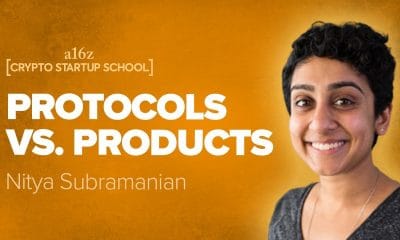
 Science & Technology4 years ago
Science & Technology4 years ago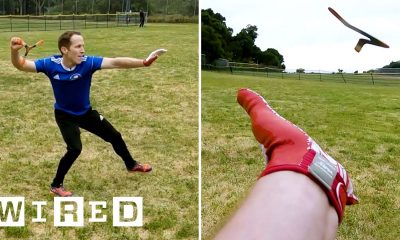
 Wired5 years ago
Wired5 years ago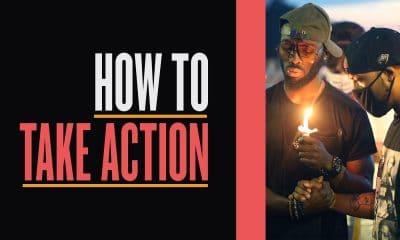
 CNET4 years ago
CNET4 years ago
 Wired5 years ago
Wired5 years ago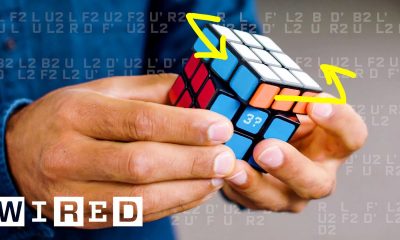
 Wired5 years ago
Wired5 years ago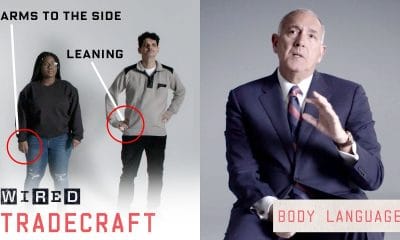
 Wired5 years ago
Wired5 years ago
 People & Blogs2 years ago
People & Blogs2 years ago
 Wired5 years ago
Wired5 years ago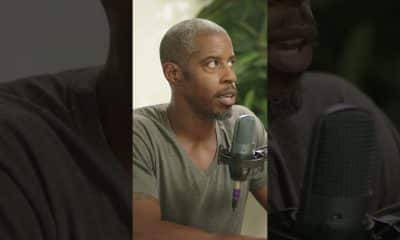

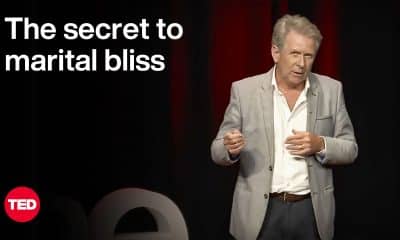

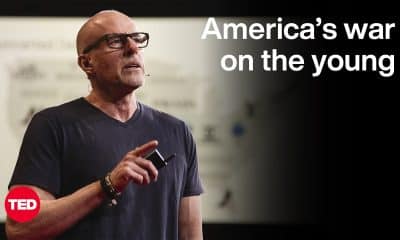

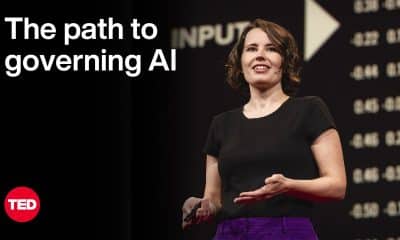

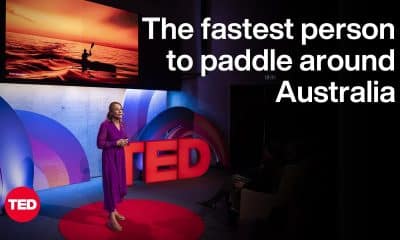



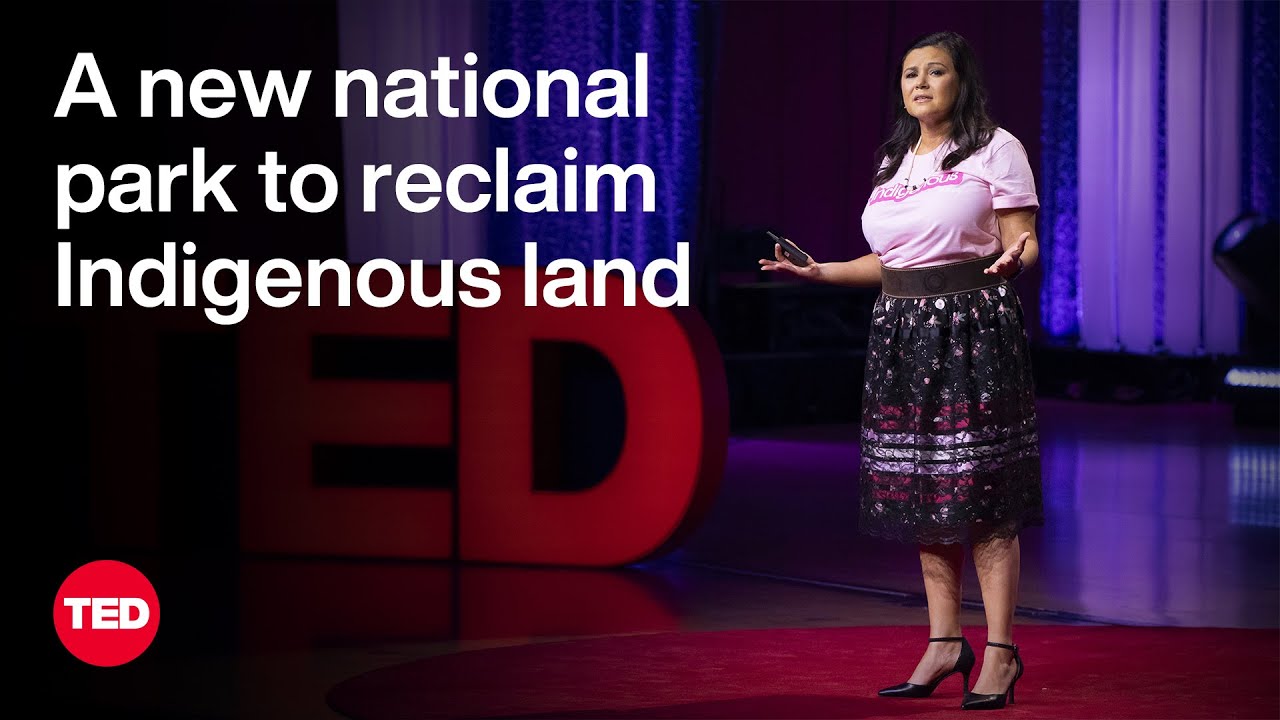
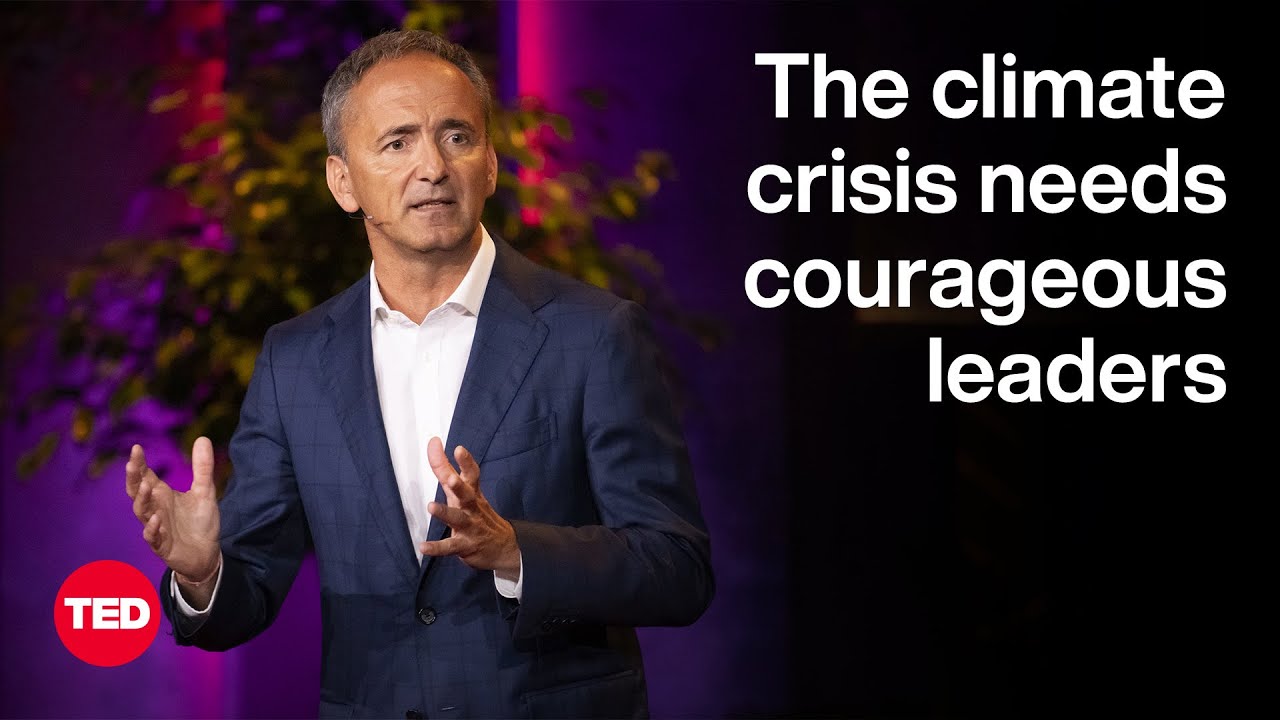
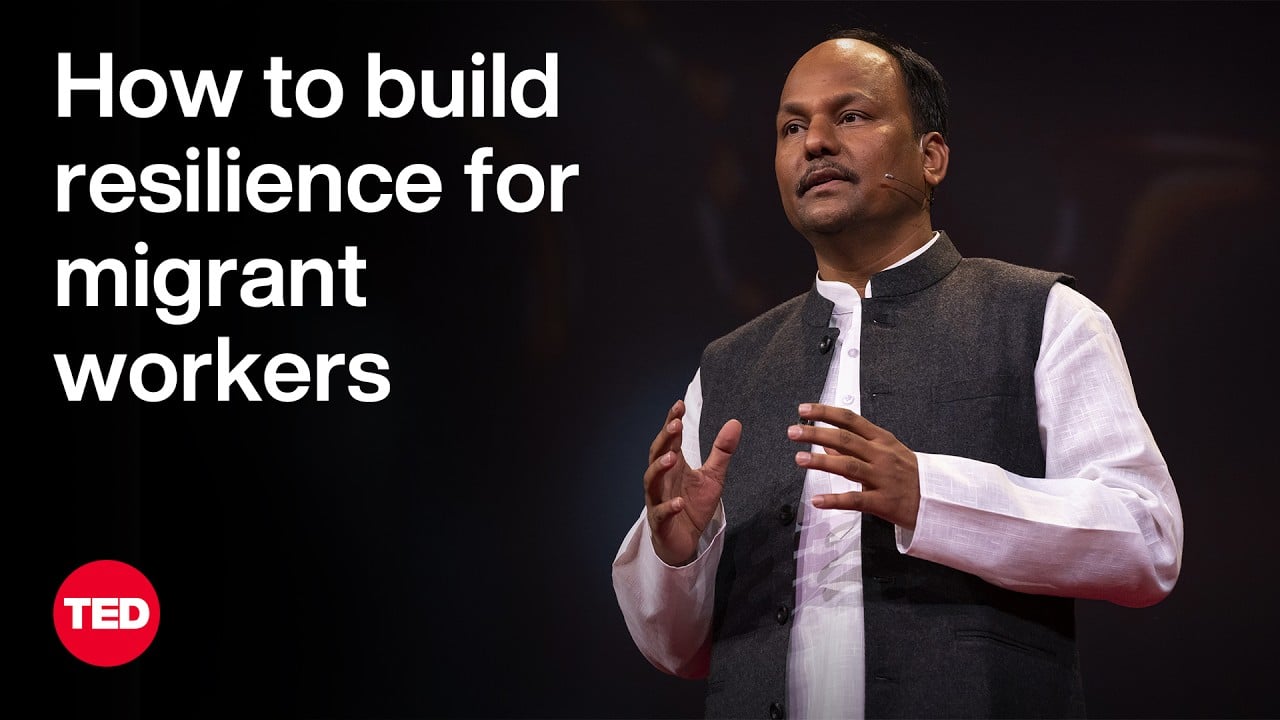




Abdelilah Serrat
May 17, 2021 at 3:07 pm
1
Free Thought
May 17, 2021 at 3:09 pm
U.S tax payers pay for Zionists while they have no healthcare! Stop funding Zionists 😡
Rahmath ullah Hussaini
May 17, 2021 at 3:09 pm
Syed shah Rahmath Ullah Hussaini REKULGI Village Tq dist Bidar Karnataka India 585227
Great idea thank you sir
Dowel
May 17, 2021 at 3:10 pm
ѕυввιиg тσ αиуσиє ωнσ ℓιкєѕ тнιѕ ¢σммєит❤️
Havoc
May 17, 2021 at 3:39 pm
Of course how you gonna know who liked it?
NOCAP BILL
May 17, 2021 at 3:10 pm
love the shirt man
MD TALKIES
May 17, 2021 at 3:28 pm
Very nice 👍
Yassin Defallah
May 17, 2021 at 3:29 pm
good advans
Partha Sarathi Dash
May 17, 2021 at 3:33 pm
Great talk. Please sync the subtitles.
Saumitra Chakravarty
May 18, 2021 at 9:19 am
I thought it was happening on my device only
Havoc
May 17, 2021 at 3:39 pm
Talks with sense but boring as f
Pedro Capitani
May 17, 2021 at 3:48 pm
Boring to you
Havoc
May 17, 2021 at 4:00 pm
@Pedro Capitani yeah you know it boii
Khalilah G
May 17, 2021 at 3:39 pm
This was the video I needed to watch for the day! Absolutely Brilliant input! Thank you!
Zenn Exile
May 17, 2021 at 3:39 pm
You don’t have to create trust. That’s a delusion. Capitol itself is trust. You inject capital to “create” trust. Can we stop catching the … business… end of fukpotato nonsense on this channel for a couple weeks? This guy is clearly a con. Everything he is sayin here is a rudimentary glimpse at a course you can take in any community college in the US called “Project Management”. He’s almost saying nothing here. Everyone with a full education should immediately identify this presentation is empty and this man as void of “trust”.
Griffin H
May 17, 2021 at 3:47 pm
If only Felon Musk saw this video
Flavio Moraes
May 17, 2021 at 4:09 pm
This is amazing research! Excelente trabalho!
pLOn
May 17, 2021 at 4:13 pm
5:51
Hamdan Hakkim
May 17, 2021 at 4:15 pm
Caption mistake
IS 4: Hamdan Hakkim
May 17, 2021 at 4:15 pm
Caption mistake
Rita Elswick
May 17, 2021 at 4:21 pm
Nice video!! Very engaging from beginning to end. Nevertheless, businesses and investment are the easiest way to make money irrespective of which party makes it to the oval office.
Bob Duncan
May 17, 2021 at 4:49 pm
@Meyert Cadman
Thanks for his info, I will contact him right now
Jon Ornelas
May 17, 2021 at 4:53 pm
Anyone in crypto knows the term “MOON MISSION” means the coins has skyrocket in value
Nazim Aiden
May 17, 2021 at 4:54 pm
he must be honest and trustworthy for people to talk this good about him.
Isabella Alan
May 17, 2021 at 4:55 pm
Really you all know him?, I even thought I’m the only one he has helped walk through the fears and falls of trading
Gordon Abston
May 17, 2021 at 4:56 pm
I love his Trading signals, they’re awesome 💯
Scott Yandell
May 18, 2021 at 2:42 am
Wow! Check out the army of bots have a complete conversation
THE CRAZY SCIENTIST
May 17, 2021 at 4:35 pm
Guys, this will take to much time
You would get much faster results if you poison the air and say you have the antidote and sell it. People will definitely trust that you are selling them the real ones even if you aren’t. Do this and you can get money from everyone you posion.
池田明美
May 17, 2021 at 4:38 pm
great!
Darshana दर्शना
May 17, 2021 at 4:58 pm
Nice background
Smart Tubers BR
May 17, 2021 at 5:54 pm
Great information…let’s share these knowledge all around the world. So, keeping promises make the world a better place.
Jaded Monk
May 17, 2021 at 6:07 pm
Excellent talk. Concise content and engaging delivery. Thank you for your time and expertise
fed99harmony
May 17, 2021 at 6:56 pm
Cc are out of sync
TRIBE OF MENTORS
May 17, 2021 at 10:46 pm
*Life changer habits you need to learn*
➡1.Practice Gratitude.
➡2.Write something
➡3.Invest in self-care.
➡4.Create a morning ritual
➡5.Make time for exercise.
Have a great one 🙏
Granjacia
May 18, 2021 at 3:20 am
too much work to do 🙁
Alysson Teixeira
May 18, 2021 at 3:04 am
Rapaz, Br com sotaque russo
Amei
Granjacia
May 18, 2021 at 3:18 am
I don’t have kids mate
Reiza Harits
May 18, 2021 at 4:21 am
7 TOOLS FOR BUILDING A BUSINESS PEOPLE TRUST
1. Access
Everyone can access the terms and conditions of the system.
2. Contracts
Everyone can sign up the contracts to enter and formalize the relationship.
3. Incentives
Encourage cooperations through rewards or to interact in a positive manner through reputations.
4. Control
Guidance. Shape the behaviour of participants like an invisible hand. Examples: like Uber/Grab system that controls the route.
5. Transparency
They make the ecosystem participants look clear and transparent.
6. Intermediation
The platform acts as the middleman.
7. Mitigation
Create protection to mitigate damage.
Lastly, do not aim to only create a digital system. Try to create a bionic system. Digital system should collaborate with nondigital systems.
Davinder Singh
May 18, 2021 at 7:53 am
Thank you
Ravan Potts
May 18, 2021 at 10:34 am
People will be disappointed in themselves in few weeks if they miss the opportunity to buy and invest in bitcoin and other crypto currency
Jerry Wilson
May 18, 2021 at 11:03 am
@Oche arns You can text him directly through *Telegram*
Jerry Wilson
May 18, 2021 at 11:06 am
@Oche arns *Telegram @Richard_Dunn*
Mara Kurzynski
May 18, 2021 at 11:07 am
Trading crypto now would be wise but trading without a professional is really bad I’m a living testimony of expert Richard strategies
Oche arns
May 18, 2021 at 11:08 am
@Jerry Wilson Thanks for his info, I’ll get to him right away
Ameenq Mustard
May 18, 2021 at 11:12 am
Trading without an award winning professional like expert Richard Dunn is like gambling with your money
Nicolas Padula
May 18, 2021 at 11:57 am
This was a really good talk. I kept wondering about government systems, and how a lack of trust in them hurts the country… I wonder what kind of projects governments have to increase their citizen’s trust on the system
The Sophist Quotes
May 18, 2021 at 6:05 pm
Nice content 👌👏👏👏
Matty Pizazz
May 18, 2021 at 11:47 pm
Thank you, Larry Gergich.
Kevin Wells
May 19, 2021 at 6:16 am
Wonderful. I was trying to find fault, because at this age it is what I do… I had one item, and then I forgot it because how well you covered everything. This was great. I bookmarked this one for sure. Thank you Marcos Aguiar.
Raphael Vasconcellos
May 19, 2021 at 2:59 pm
It’s simple. Don’t build a business but an cooperative. The worker class only trust the bourgeoisie when it’s brainwashed to.
Lisa Love Ministries
May 20, 2021 at 3:31 am
Proverbs 9:10
“The fear of the LORD is the beginning of wisdom, and knowledge of the Holy One is understanding”